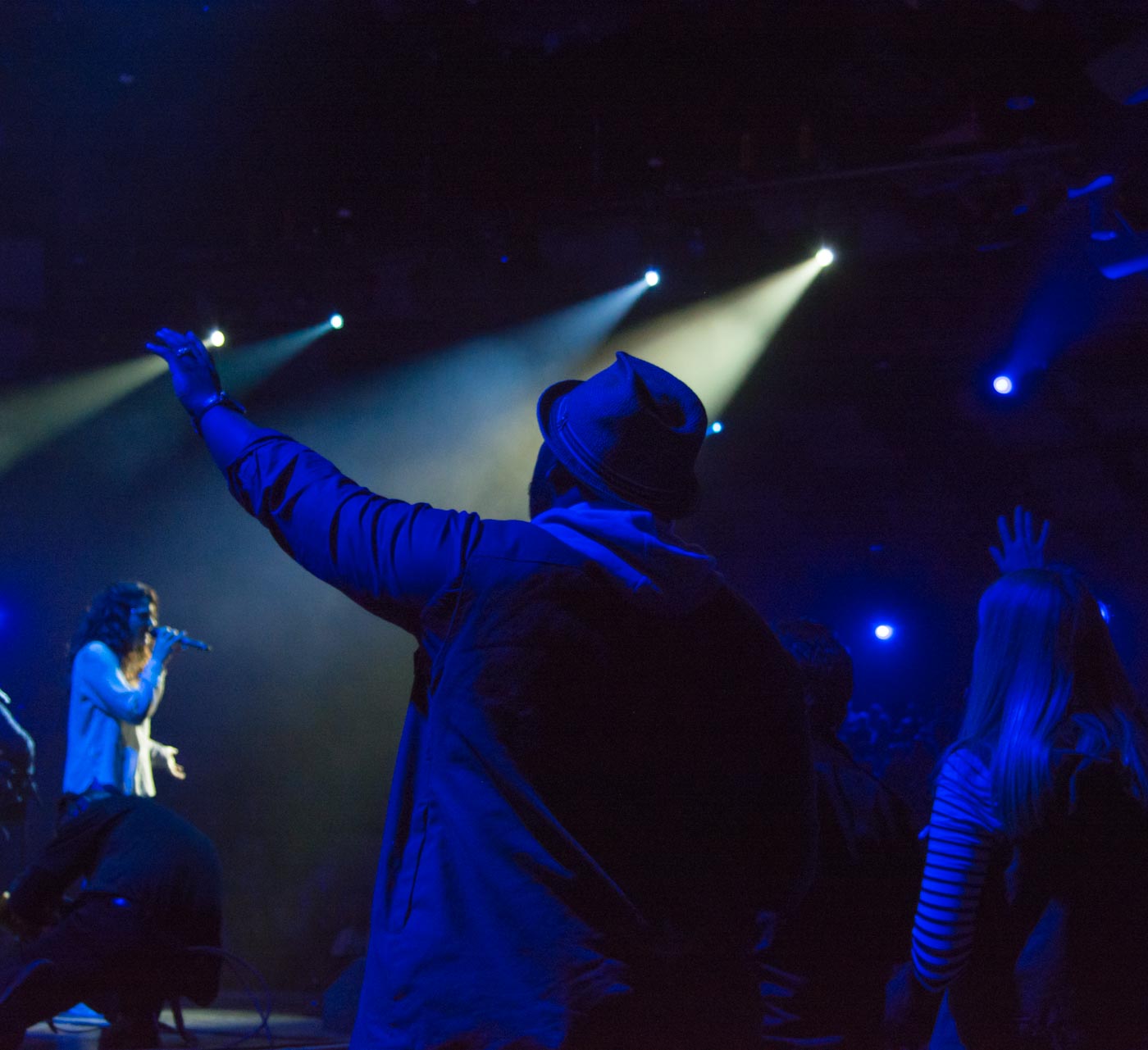“As a background vocalist you have the opportunity to lead by simply being a great example of a worshipper for the congregation to see.”
We recently added a vocal position at 12Stone® Church at Flowery Branch taking us from 3 to 4 vocals consistently every week. It’s been fantastic. There is more energy on the stage, more powerful vocals, and more dynamic options for producing or arranging vocals. It’s been a really great addition. However, since there are more people singing on our stage there are less opportunities to actually sing the lead a song and by that I mean sing the lead vocal and lead the congregation through the song verbally. So we have 1 or 2 people that may end up singing background vocals all day. Which is a really fun and really important job, but unfortunately it can be seen as a lesser responsibility in some ways.
So I wanted to share with you 3 ways I believe background vocalists are extremely valuable as worship leaders.
1.) A Background Vocalist Is An Identifiable Example
As a background vocalist you may just be the most identifiable example of how to worship that the congregation has. They aren’t playing guitar, they aren’t leading the song. They are simply singing along. I know that as a bgv you are probably singing a part, but they don’t know that. If you are singing along even when you’re not singing “on mic” you are giving the congregation a great example that they can identify with closely. As you lift your hands, sing along, clap along, etc… you’re showing them what to do. They can identify with you because they can do everything that you’re doing.
2.) A Background Vocalist Is Untethered
Also, you aren’t tethered to your mic stand constantly. I mostly play guitar while I lead and I’m tethered to a guitar and responsible for playing the right chords. I’m also tethered to my mic stand when I’m singing lead vocal. But as a background vocalist I can move around more. I can create a lot of energy by getting off my mic, clapping along, and engaging with my body language in ways that I can’t when I have to stay at my mic. I love those verses that I can back off and encourage the congregation to sing along by simply singing along myself.
3.) A Background Vocalist Is A Support
I love when the other musicians on stage are engaged in the song. I have a drummer who sings a long a lot and I love it. It’s supportive to the worship leader and a background vocalist has the best position to do this. When the worship leader encourages the congregation to do something; lift their hands, clap along, sing loud, etc… by being the first to respond to that leadership you are being supportive and giving the congregation an immediate example of what to do. It’s fantastic. You can help when the worship leader is speaking by simply listening, looking at them and nodding along in agreement with them.
As a worship leader I’m leading verbally, leading through the lyric, leading the band, etc…, but as a background vocalist you have the opportunity to lead by simply being a great example of a worshipper for the congregation to see. Lead God’s people well no matter if your spot light is on or off!
Key Thoughts:
- Background vocalists are identifiable examples of how to worship
- Background vocalists are untethered to worship freely
- Background vocalists exude humility by supporting the worship leader
What are some of the other incredible values of being a background vocalist?

One response to “Leading Worship as a Background Vocalist”
It’s important not to “overrate” being the lead singer. I can truly say that, since you’ve put me on BGV’s, I’ve engaged more with the congregation than I EVER did as a “just” a keyboardist. If I ever sang lead it would most certainly signify the second coming since I have such a low voice, but I’ve had more men (and women) come up to me and comment on my vocals just because I give them something they “know”…the choral fourth part (bass)…the octave down where most men sing anyway…the “depth” of a lower register. Even as a BGV, people hear and respond to you, especially if you give them something to identify with. Sometimes a high tenor with a crazy guitar lick is the LAST thing people can identify with, and that’s where all the music support positions come into play in a worship setting. BGV’s should never be phoned in…even if that’s all you’re singing all day!